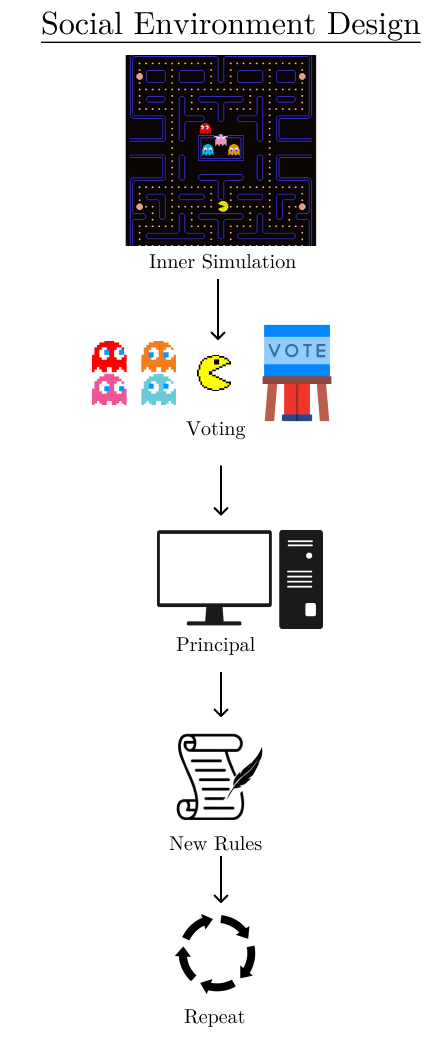





Artificial Intelligence (AI) holds promise as a technology that can be used to improve government
and economic policy-making. This paper proposes a new research agenda towards this end by
introducing Social Environment Design, a general framework for the use of AI for
automated
policy-making that connects with the Reinforcement Learning, EconCS, and Computational Social Choice
communities.
The framework seeks to capture general economic environments, includes voting on policy objectives, and
gives a
direction for the systematic analysis of government and economic policy through AI simulation. We
highlight
key open problems for future research in AI-based policymaking. By solving these challenges, we hope to
achieve
various social welfare objectives, thereby promoting more ethical and responsible decision making.
Please note that the final two sections in the Beginner-Friendly and Detailed Explanations are
identical.






Artificial Intelligence, or AI, is an incredibly broad field encompassing topics like Large Language
Models (like ChatGPT), machine vision (think of AI
looking at X-Rays to find tumors), and much more. Our research focuses on a different
implementation, concerning how AI could be applied in government and economics. Specifically, we are
proposing a framework in which AI would make more informed and unbiased decisions in government roles.
We call this framework Social Environment Design, or SED for short.
Please note that the final two sections in the Beginner-Friendly and Detailed Explanations are
identical.






@inproceedings{zhang2024sed,
title={Social Environment Design},
author={Edwin Zhang and Sadie Zhao and Tonghan Wang and Safwan Hossain and Henry Gasztowtt and Stephan Zheng and David C. Parkes and Milind Tambe and Yiling Chen},
booktitle={International Conference on Machine Learning},
year={2024},
url={https://arxiv.org/abs/2402.14090}
}